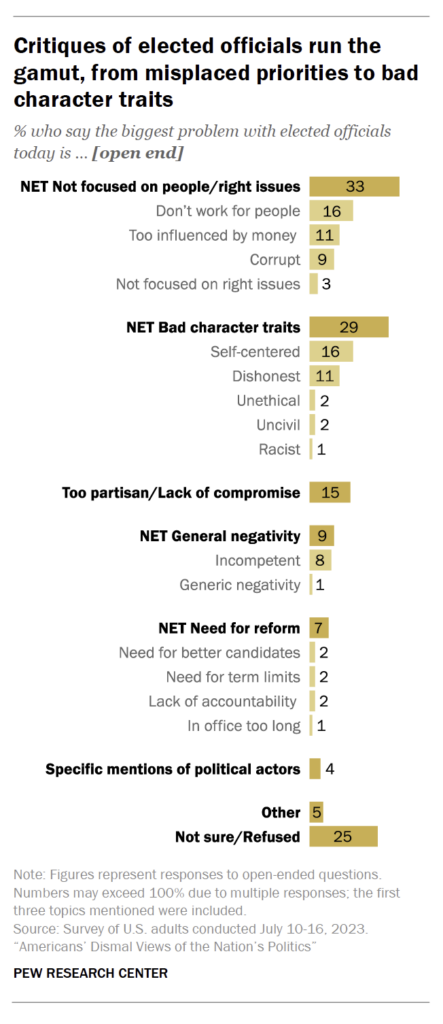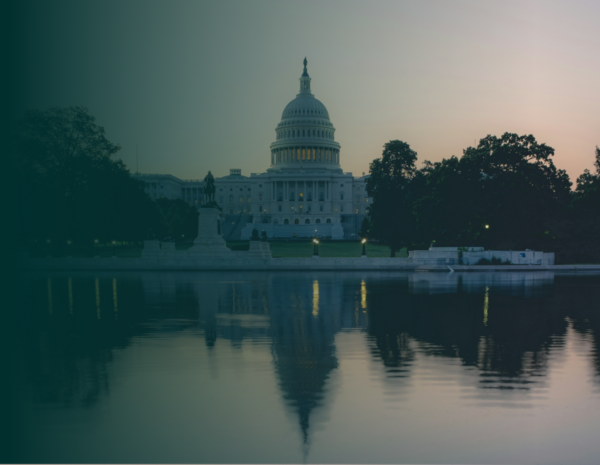Our mission at Plural is to make policy creation more transparent, responsive, and inclusive. We also seek to make full participation possible. Our work began with a focus on policymaking in the U.S. at the federal, state, and territory levels. But the vision of Plural’s founders stretches internationally beyond the United States. Last year, we expanded our services to Nigeria, one of the fastest-growing democracies in the world.
From the beginning, we have seen open data as a critical tool. Open data improves our democratic processes, helping ordinary citizens get involved. It provides the basis for high-quality, bilateral communication between citizens and their representatives. Clear records of legislative activity help us hold our government accountable. When citizens have access to policy proposals, politicians can provide better representation by soliciting, hearing, and acting upon the positions of their constituents.
Key Tenets of Open Democracy
An open democracy is one that is transparent, accountable, and inclusive. It can often be challenging to apply strict definitions to concepts like democracy. At Plural, consider an open democracy as an ideal. It goes beyond the core democratic tenet of vesting state power to the people. Rather, an open democracy actively encourages the people’s use of that democratic power.
Democratic governments have the opportunity to be more open throughout all of their processes. However, the benefits of openness and citizen engagement are most apparent in:
- How we elect leaders
- How we influence their work
- How we hold politicians accountable
True Government by the People
In representative democracies, leaders emerge from all backgrounds. Thus, the government is representative of the citizens they represent. This ideal is often difficult to achieve, as power can be consolidated even within democracies. However, representative government enhances a citizen’s sense of ownership of political decisions. True representation strengthens democracy.
Democratic Power to the People
Participatory rights in an open democracy don’t end with the ability to be elected or have your peers elected. An open democracy requires that popular opinion can hold officials accountable. Ordinary individuals, elected or not, must have influence on the policymaking process. At both the local and state levels, this may involve the ability to testify at a public hearing or collect signatures for a referendum. At the federal level, it may look like calling your legislator’s office to express an opinion. Regardless, collective public opinion expressed during an election must ensure that our representatives work in our interest. We must feel that our vote matters.
Challenges to an Open Democracy
You don’t have to look far in 2024 to find a discussion of the challenges that the promise of democracy faces. Discussions surrounding faith in elections and the rule of law have been brought to the fore. When these basic principles of democracy are threatened, it can be easy to write off challenges to an improved or open democratic society. But these threats to the governance we would like to see are still important to acknowledge and resolve.
One of the key challenges to open democracy is a perceived lack of connection between citizens and their elected officials. In 2023, one-third of Americans surveyed felt that politicians were not focusing on the people they represent or the right issues. Of this group, 16% felt that politicians do not work for the people. Eleven percent indicated that politicians are too influenced by money, and 9% feel as though politicians are corrupt. See more in the image. (Photo credit: Pew Research.)
Particularly at the federal level, the role of money in politics contributes to this disconnect. Ever-increasing campaign spending restricts the ability of the “ordinary citizen” to be elected. This leads to the perception that issues are decided in the favor of corporate donors over broader public sentiment. This approach to politics leads to an apathetic citizenry, the antithesis of open democracy.
An open democracy requires an engaged constituency. Shifts are needed to ensure that citizens retain a feeling of ownership over the decisions made by their representatives. These might include campaign finance reform and electoral reforms, like redistricting.
While reforms can and should be made, true voter engagement requires a step further. An engaged voter base requires access to to the democratic process. This is where open data is key.
What Is Open Data, and How Does It Contribute to Democracy?
Open data is freely available for anybody to access, use, and share without hardship. In the context of democracy, open civic data generally refers to providing citizens with access to public government data. While this data is public and provided by the government, it can be difficult to access. This is where open civic data providers like Plural come in. Plural and others seek to provide citizens with an easy and intuitive path to engaging with their government.
Accessing this data allows individuals to follow and influence policymaking at every stage. This includes:
- Seeing the introduction of a bill
- Testifying at a public hearing
- Identifying which legislators supported the legislation
- Tracking the implementation of a new policy after it becomes law
Examples of Open Civic Data That Bolster Democracy
| Electoral | Legislative | Governance |
|---|---|---|
| Election results | Legislator vote histories | Government agency spending |
| Campaign finance reports | Proposed legislation | Election processes and procedures |
| Voting locations | Upcoming public hearings | Government reports (on education quality, for example |
There are many more examples of open civic data that we can think of. However, each example mentioned above is connected in that access to this data is vitally important to an engaged populace. All of this data is traditionally made public. Despite this level of access, citizens often rely on non-governmental organizations, like media or civic data projects, to access it. For instance, we often see efforts by advocacy organizations to generate large-scale public input on headline issues. However, this level of engagement is not sustainable across all of the decisions our government makes. Citizens’ reliance on others to engage with their government’s activity can be problematic.
In an ideal world, open civic data would allow each citizen to easily understand and engage with policymaking. Let’s consider our open democratic standard of bilateral communication between legislator and constituent. With open civic data, every citizen can share their opinion and compare it against the actions of their elected officials. This communication allows for better policy and accountability throughout the democratic process.
Plural’s Commitment to Open Data and Transparent, Open Democracy
In 2021, Plural adopted the leading US-based open civic data project Open States. Since then, we have continued to encourage civic engagement. This includes bringing Open States data into our more accessible and powerful UI. We are proud to maintain and expand access to open civic data. Plural’s data has been used by news organizations, grassroots advocacy groups, and ordinary citizens alike, all with the goal of improving democracy.
At Plural, we believe that an improved democratic process can lead to policymaking that meets the needs of the people. Open data is at the heart of improving democratic processes, and our work centers access to civic data in every jurisdiction we support.
Get Started
Plural helps government relations teams, advocacy groups, and concerned citizens alike get and stay ahead in the public policy landscape. With Plural, you’ll:
- Access superior public policy data
- Be the first to know about new bills and changes in bill status
- Streamline your day with seamless organization features
- Harness the power of time-saving AI tools to gain insights into individual bills and the entire legislative landscape
- Keep everyone on the same page with internal collaboration and external reporting all in one place
Create a free account or book a demo today!
More Resources for Public Policy Teams
Key Benefits of AI for Lobbying & Advocacy
Want to be able to explain the benefits of artificial intelligence for lobbying and advocacy? Everyone is talking about AI. And we get it, it’s not simple to understand. But as an AI-powered organization, Plural is here to help you get the most out of advancements in AI to make your job as a policy […]
2025 Legislative Committee Deadlines Calendar
Staying on top of key deadlines is manageable in one state, but if you’re tracking bills across multiple states, or nationwide, it quickly becomes overwhelming. That’s why we created the 2025 Legislative Committee Deadlines Calendar. Stay ahead of important dates and download our calendar today. Get started with Plural. Plural helps top public policy teams get […]
End of Session Report: Florida 2024 Legislative Session
The 2024 Florida legislative session saw significant activity in the realm of insurance and financial services, reflecting key themes of consumer protection, market stability, and regulatory modernization.




